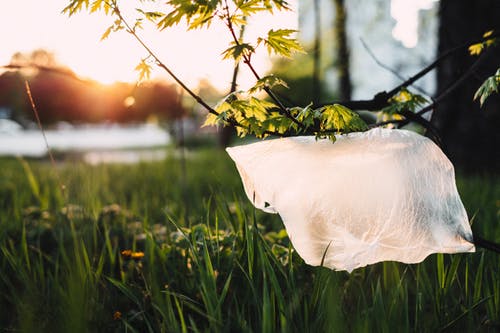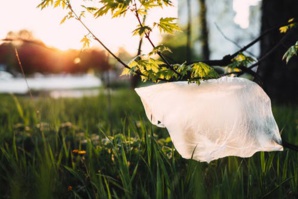Dailycsr.com – 17 May 2019 – Within a period of ninety days, Australia managed to bring down its plastic bag consumption by 80%, revealed the “National Retail Association” of the country, whereby bringing “some great news” for the “platypuses, dugongs, and pig-nosed turtles”. What is remarkable about this changed habit of Australian people is that this was not enforced on by any government policy decision.
On the contrary, this change was brought about by a corporate initiative. Two of the “largest supermarket chains”, namely “Coles and Woolworths”, were instrumental in this sharp decline of plastic bags usage. In the month of July, the duo decided to introduce a “nationwide ban on free lightweight plastic grocery bags” and replaced the same with reusable ones which were sold at “15 cents”.
On the whole, this achievement has acted as a prevention whereby stopping “as many as 1.5 billion bags” to land up as environment pollutant. In a statement, the “Manager of Industry Policy” at the National Retail Association, David Stout said:
“Retailers deserve an enormous amount of kudos for leading the way on one of the most significant changes to consumer behavior in generations and we also applaud shoppers for embracing this environmental initiative”.
“Nation-wide retailers have led the way and as a result also assisted smaller businesses in providing a template on how to manage the transition to a plastic bag-free retail environment. As a result, we are seeing similar changes made across the food, homeware, and service categories.”
The phasing out of “lightweight plastic bags”, which is ongoing at the moment, is being supervised by regional authorities instead of carrying out the same as a national level scheme. In most of the Australian states, plastic bans have wither come into effect or remain pending at the moment, however, this excludes the “New South Wales” which happens to the most populated state of the country.
Nevertheless, it was not an easy decision to push through, as Coles has shown slight reluctance to “impose the ban”, as it went back and forth several times with their plans of implementing the bans as it met with objections from the customers. While, Stout added:
“The decision by certain retailers to no longer offer free single-use plastic carry bags certainly received a hostile response from some shoppers initially, but these retailers deserve credit for dramatically reducing the number of bags in circulation”.
Even though, many other countries, like Australia, have begun their initiatives in implementing a ban on plastic bags, yet there is still a long way to cover to curb “plastic pollution in general”.
References:
scienceinsanity.com
On the contrary, this change was brought about by a corporate initiative. Two of the “largest supermarket chains”, namely “Coles and Woolworths”, were instrumental in this sharp decline of plastic bags usage. In the month of July, the duo decided to introduce a “nationwide ban on free lightweight plastic grocery bags” and replaced the same with reusable ones which were sold at “15 cents”.
On the whole, this achievement has acted as a prevention whereby stopping “as many as 1.5 billion bags” to land up as environment pollutant. In a statement, the “Manager of Industry Policy” at the National Retail Association, David Stout said:
“Retailers deserve an enormous amount of kudos for leading the way on one of the most significant changes to consumer behavior in generations and we also applaud shoppers for embracing this environmental initiative”.
“Nation-wide retailers have led the way and as a result also assisted smaller businesses in providing a template on how to manage the transition to a plastic bag-free retail environment. As a result, we are seeing similar changes made across the food, homeware, and service categories.”
The phasing out of “lightweight plastic bags”, which is ongoing at the moment, is being supervised by regional authorities instead of carrying out the same as a national level scheme. In most of the Australian states, plastic bans have wither come into effect or remain pending at the moment, however, this excludes the “New South Wales” which happens to the most populated state of the country.
Nevertheless, it was not an easy decision to push through, as Coles has shown slight reluctance to “impose the ban”, as it went back and forth several times with their plans of implementing the bans as it met with objections from the customers. While, Stout added:
“The decision by certain retailers to no longer offer free single-use plastic carry bags certainly received a hostile response from some shoppers initially, but these retailers deserve credit for dramatically reducing the number of bags in circulation”.
Even though, many other countries, like Australia, have begun their initiatives in implementing a ban on plastic bags, yet there is still a long way to cover to curb “plastic pollution in general”.
References:
scienceinsanity.com


 Australia Slashes 80% Of Its Plastic Bags Consumption In Ninety Days
Australia Slashes 80% Of Its Plastic Bags Consumption In Ninety Days





 Companies
Companies